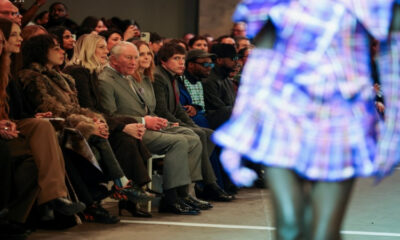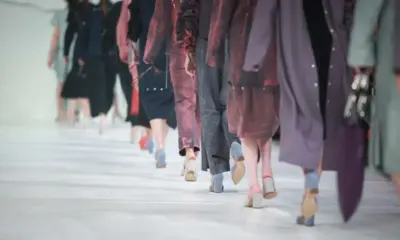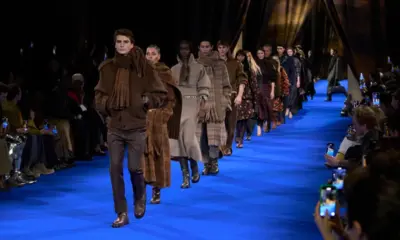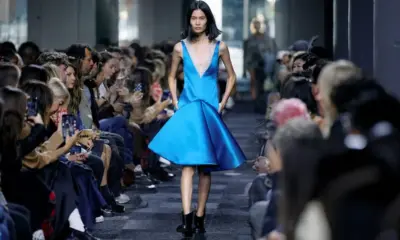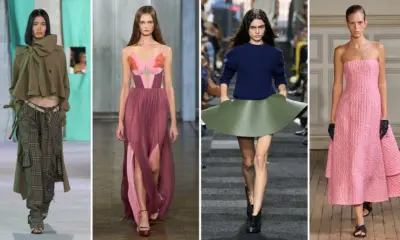Fashion
London Fashion Week 2025: How Designers Are Blending AI and Sustainability
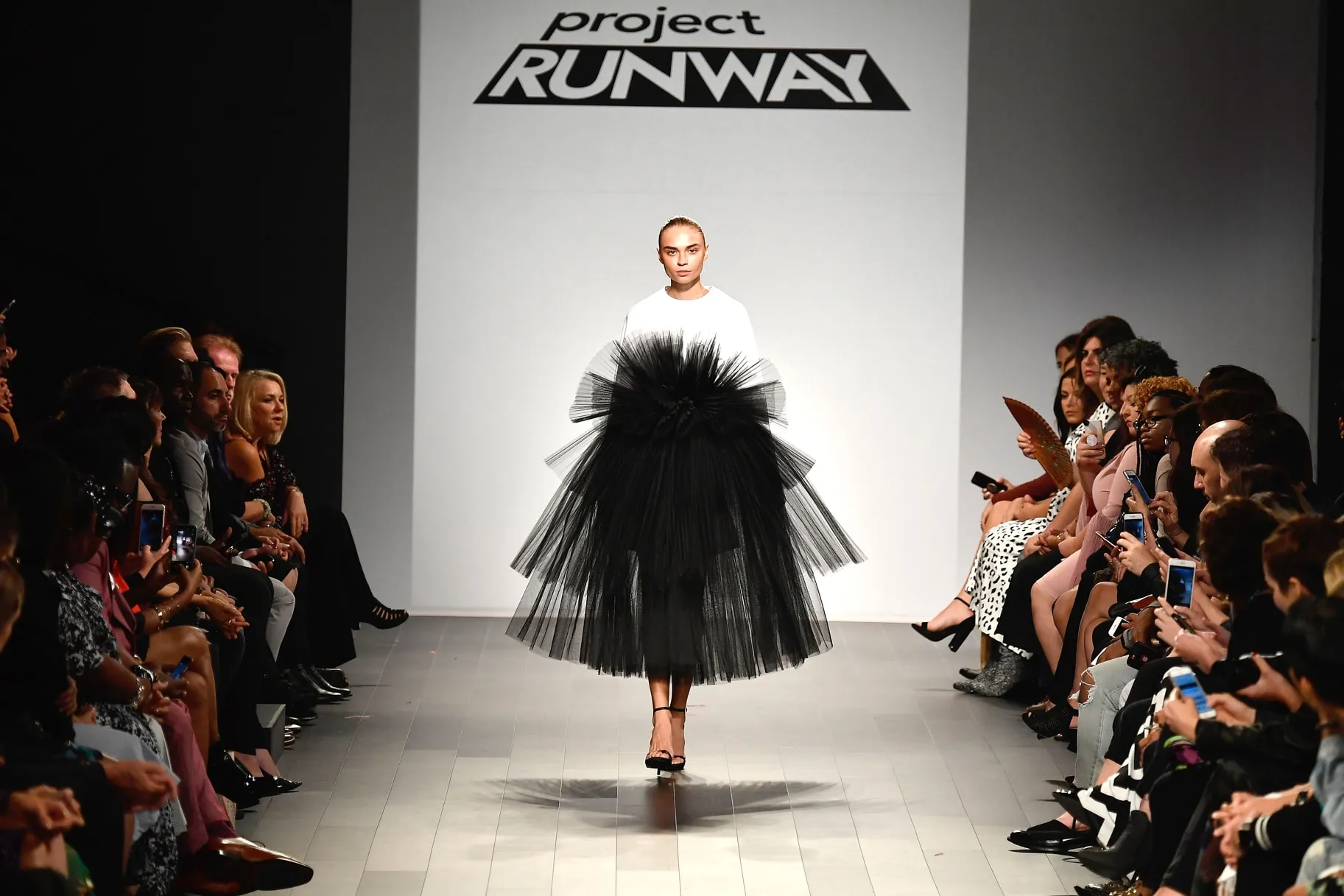
London Fashion Week 2025 unfolded as a defining moment for the global fashion scene, bringing together innovation, sustainability, and digital transformation. This year’s showcase proved that technology and environmental awareness can coexist beautifully on the runway. Designers demonstrated how artificial intelligence and eco-friendly practices are shaping a new era of creativity that balances aesthetic ambition with ethical responsibility. From virtual design tools to recycled textiles, the event highlighted London’s position as a global leader in sustainable and tech-driven fashion.
AI in Design: Creativity Meets Code
Artificial intelligence has transitioned from being a backstage tool to becoming a creative collaborator. Many of London’s leading designers unveiled collections created with the help of AI-driven software capable of analyzing patterns, forecasting trends, and even generating digital prototypes. The integration of AI allowed fashion houses to shorten design cycles, reduce material waste, and explore avant-garde concepts without the physical cost of trial and error.
This new relationship between human creativity and algorithmic intelligence was most visible in the collections of emerging designers who used AI to simulate garment movement and fit on virtual models before production. The process minimized the need for multiple fabric samples and reduced carbon emissions from overseas manufacturing tests. For established labels, AI has become a way to predict consumer demand more accurately, guiding sustainable production runs and avoiding the issue of unsold inventory.
Fashion critics noted that AI is not replacing the designer’s vision but amplifying it. By freeing creative teams from routine design tasks, artificial intelligence allows for deeper exploration of craftsmanship and storytelling. As one industry editor observed during Fashion Week, AI has become “the new muse of fashion” a partner in innovation that mirrors the artistic spirit of London’s design community.
Recycled Textiles and Eco-Conscious Materials
Sustainability took center stage once again, with many brands showcasing collections built entirely from recycled or biodegradable materials. Designers focused on circular fashion, turning post-consumer waste, repurposed fabrics, and innovative bio-textiles into high-end couture. This trend reflects a growing demand from consumers who want style that aligns with environmental ethics.
Recycled polyester, organic cotton, and regenerated nylon appeared throughout the collections, alongside experimental materials like mycelium leather and plant-based sequins. Several British labels collaborated with textile researchers to develop fabrics that can be reused multiple times without losing quality. The result was clothing that felt luxurious while maintaining a minimal ecological footprint.
The production process also underwent transformation. Instead of large-scale factories, many designers relied on micro-manufacturing studios that emphasize ethical labor practices and local craftsmanship. The shift toward smaller production models reduces transport emissions and strengthens community-based fashion ecosystems within London. The overall message was clear: sustainability is no longer an accessory to design but its foundation.
Digital Fashion and Virtual Runways
Digital fashion was another powerful presence at London Fashion Week 2025. Virtual runways, augmented reality fittings, and immersive online showrooms brought the event to audiences far beyond the physical venues. Several designers introduced entirely digital collections that could be worn in virtual environments or on social media avatars. This shift represents a new chapter for fashion’s relationship with technology, merging creativity with accessibility.
Virtual shows allowed brands to engage global audiences while reducing the environmental cost of traditional fashion week logistics. By cutting down on travel and physical set construction, digital showcases saved tons of carbon emissions. Moreover, these innovations opened doors for smaller independent designers who might otherwise lack the resources for large-scale runway productions.
The audience response to this digital evolution has been overwhelmingly positive. Consumers are increasingly comfortable purchasing virtual items and experimenting with digital self-expression. Platforms that merge gaming technology and fashion now offer virtual wardrobes, where users can “wear” their favorite pieces in online spaces. For many industry leaders, this is more than a passing trend; it is a redefinition of what fashion means in a world where physical and digital identities intersect.
A New Creative Direction for London’s Fashion Identity
The blend of AI innovation and sustainability is transforming London’s creative direction. Historically celebrated for its rebellious and experimental spirit, the city’s fashion industry is now also recognized for its environmental leadership and technological sophistication. Designers are combining traditional craftsmanship with futuristic tools, proving that innovation does not mean abandoning heritage but rather evolving it.
Educational institutions such as Central Saint Martins and the London College of Fashion are integrating digital design and sustainability courses into their curricula, ensuring that the next generation of designers is fluent in both creative artistry and environmental consciousness. Major brands are forming partnerships with tech companies to develop materials, data analytics systems, and blockchain-based supply chain tracking to ensure transparency and accountability.
This evolution mirrors the broader shift in consumer culture. Buyers are becoming more aware of the ethical implications of their fashion choices. They want transparency about sourcing, labor, and production. London’s fashion scene is responding by embracing slow fashion, bespoke tailoring, and long-term durability. The emphasis is moving from fast consumption to meaningful creation.
Conclusion
London Fashion Week 2025 reaffirmed the city’s status as a pioneer in redefining what modern fashion represents. Through the fusion of artificial intelligence, recycled textiles, and digital innovation, designers are crafting a vision that respects both creativity and the planet. The event signaled that the future of fashion will be built on collaboration between technology and sustainability, shaping garments that tell stories of both human imagination and global responsibility.
As London continues to inspire the global industry, it is clear that the world’s fashion capital is leading not just in style but in values. The creative energy showcased this year points to a future where design, innovation, and ethics coexist seamlessly, a future as intelligent as it is sustainable.

